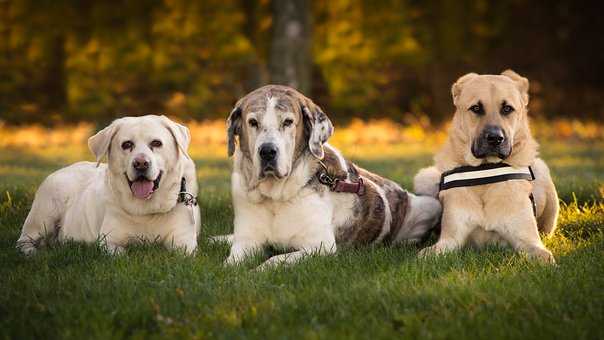
Senior Dogs
As our beloved canine companions age, they, like humans, become more susceptible to a range of health issues. Recognizing the signs of these conditions early can make a significant difference in your dog’s quality of life and longevity. This article delves into seven common health conditions found in senior dogs, including Cushing’s Disease, and offers insights into their care and treatment.
Why It’s Important to Be Aware of Health Issues Your Dog Could Face
Awareness is the first step towards prevention and timely intervention. By understanding the potential health challenges your senior dog might face, you can be proactive in seeking veterinary advice, adjusting their care routine, and ensuring they remain comfortable and happy in their golden years. Early detection often means more manageable treatments and better outcomes.
Signs of Aging in Dogs
As dogs age, they undergo various changes that can be indicative of their advancing years. One of the most noticeable signs is a decrease in energy levels. Your once playful and exuberant pup may start to slow down, preferring shorter walks and less playtime. Physical changes are also common, including graying fur, particularly around the muzzle, and a decrease in muscle tone, which can lead to a more pronounced bony appearance.
You may also notice changes in their eyes, such as cloudiness, which is often a sign of cataracts. In addition to these physical changes, senior dogs may exhibit behavioral changes. They might become more irritable, less responsive to commands, or show signs of confusion and disorientation.
Changes in appetite and weight, either an increase or decrease, can also be signs of aging and may indicate underlying health issues. It’s essential to be attentive to these signs and consult your veterinarian if you have any concerns about your aging dog’s health. Regular check-ups become even more crucial as your dog ages, helping to ensure that any potential issues are identified and addressed early.
7 Health Conditions Common in Senior Dogs
Arthritis: As dogs age, their joints can become less flexible, leading to arthritis. Symptoms include limping, difficulty rising, and a decrease in activity levels.
Cushing’s Disease: This condition is caused by an overproduction of cortisol by the adrenal glands. Symptoms can include increased thirst and urination, increased appetite, panting, and a pot-bellied appearance. It requires specific tests for diagnosis.
Dental Disease: Older dogs are more prone to dental issues like gum disease and tooth loss. Regular dental check-ups are crucial to prevent severe infections.
Vision and Hearing Loss: Just like humans, senior dogs can experience a decline in their vision and hearing. This might manifest as clumsiness, not responding to calls, or being startled easily.
Heart Disease: Older dogs can develop heart conditions, which might present as coughing, difficulty breathing, and lethargy.
Kidney Disease: Reduced kidney function is common in senior dogs. Symptoms include increased thirst and urination, loss of appetite, and weight loss.
Cancer: Unfortunately, older dogs are more susceptible to various cancers. Regular check-ups can help in early detection and treatment.
Senior Dog Care Tips
Regular Vet Visits
Schedule regular check-ups, at least once a year, to catch potential issues early.
Balanced Diet
Ensure your senior dog has a balanced diet that caters to their changing nutritional needs.
Exercise
Keep them active, but adjust the intensity and duration of exercise based on their health and energy levels.
Comfort
Provide a comfortable living environment, including soft bedding and toys.
Natural Relief vs Traditional Medicine
While traditional medicine offers proven treatments for many ailments, natural remedies can also provide relief, especially for chronic conditions. For instance, natural supplements for older dogs like glucosamine can help with joint pain, and certain herbs might offer support for kidney function. However, always consult with your vet before introducing any new treatments, natural or otherwise, to ensure they’re safe and effective for your pet.
Conclusion
Senior dogs, with their gentle demeanor and years of companionship, hold a special place in our hearts. Being aware of the common health issues they might face allows us to provide the best care possible during their golden years. Whether you opt for traditional medicine, natural remedies, or a combination of both, the key is to prioritize their comfort and well-being. After all, they’ve given us years of unconditional love; it’s our turn to ensure their twilight years are filled with comfort and joy.






